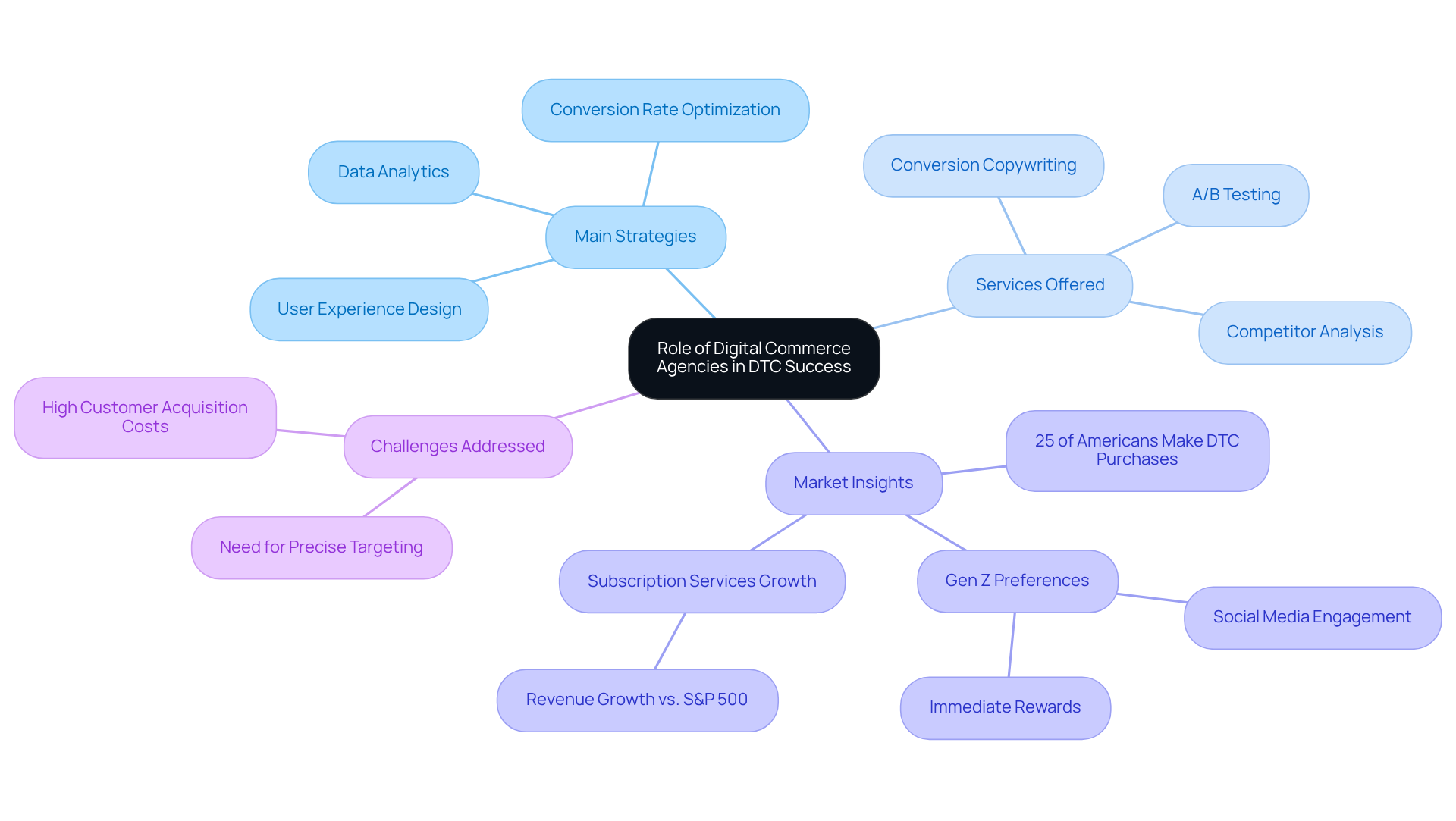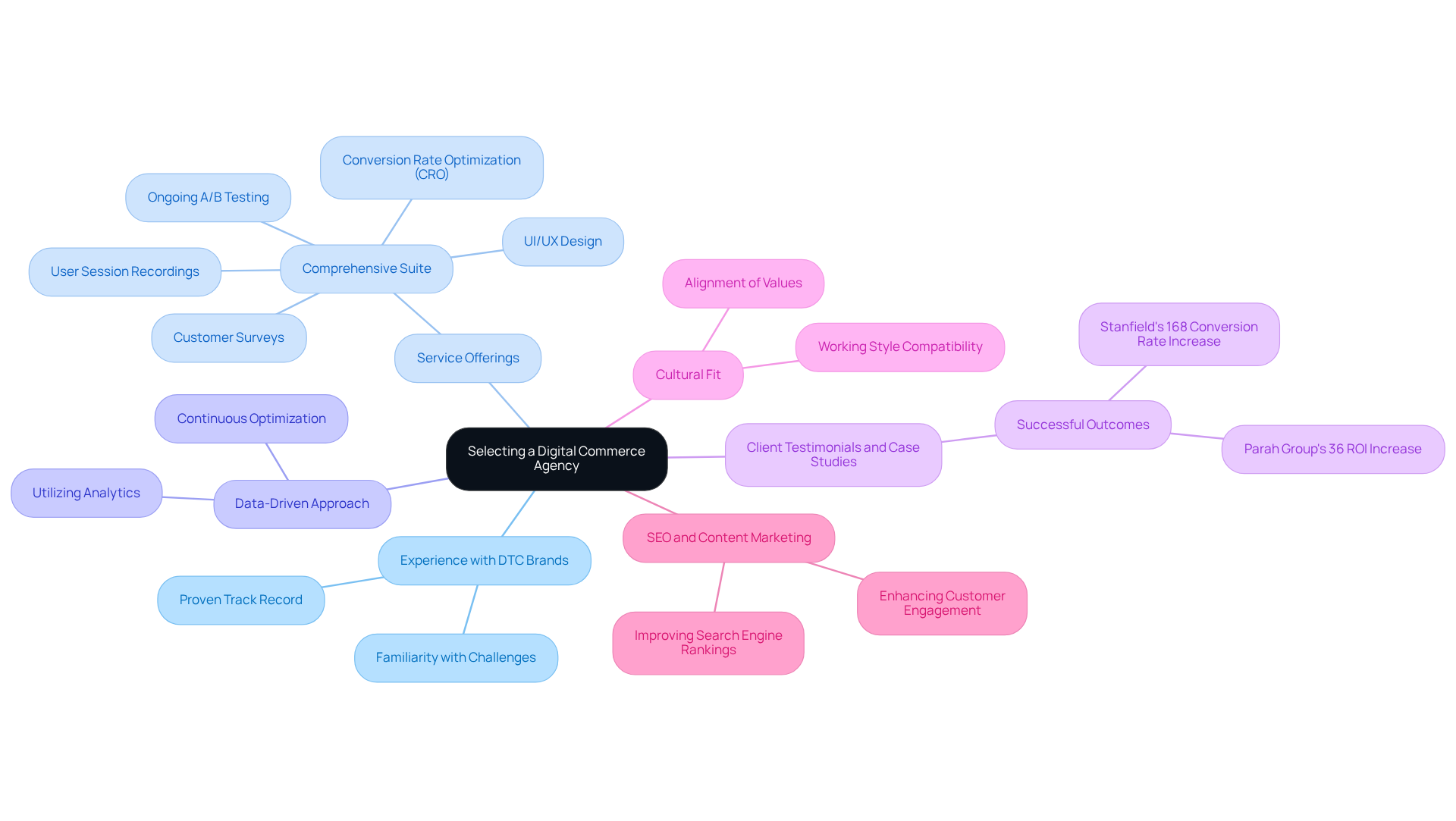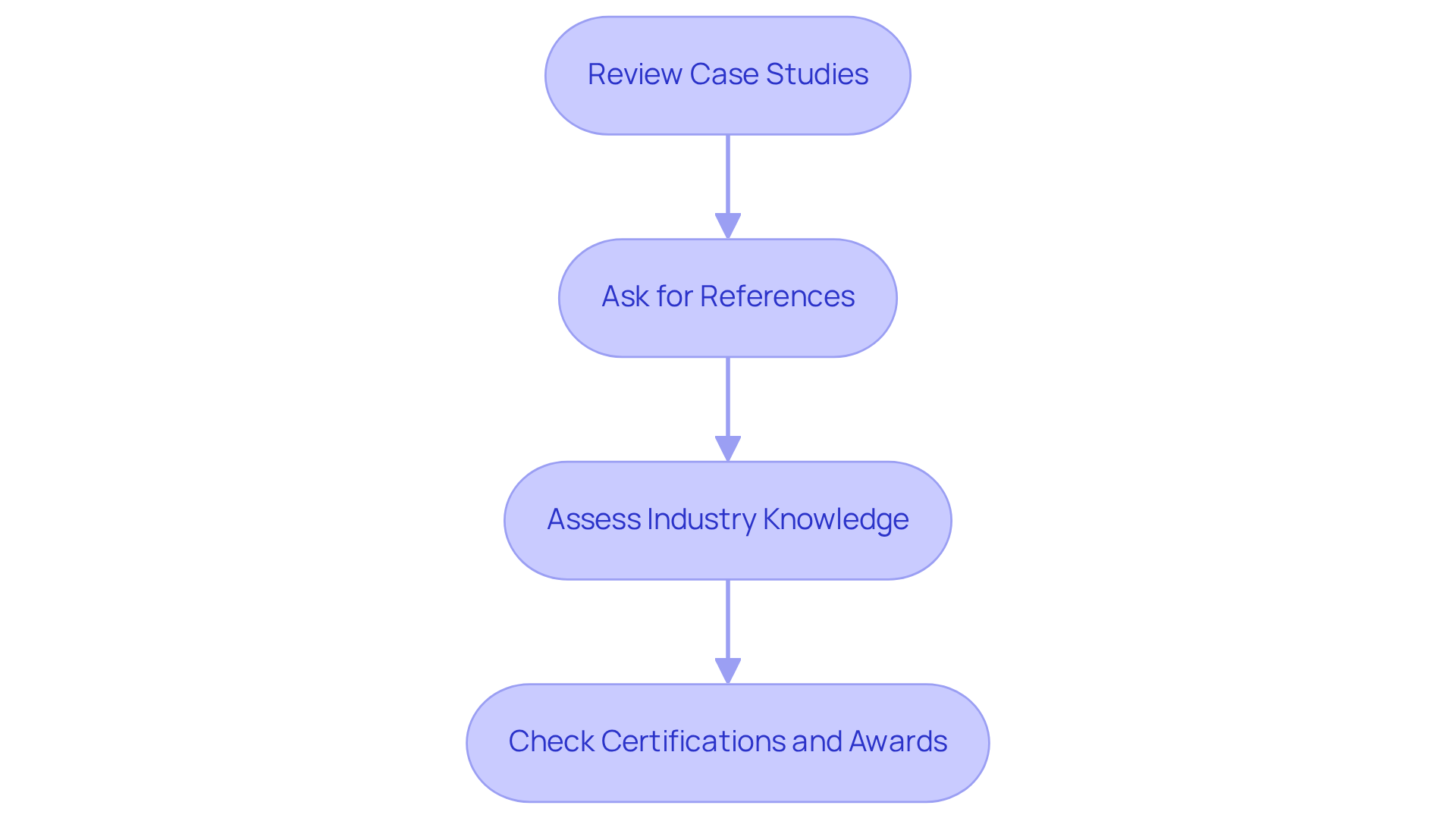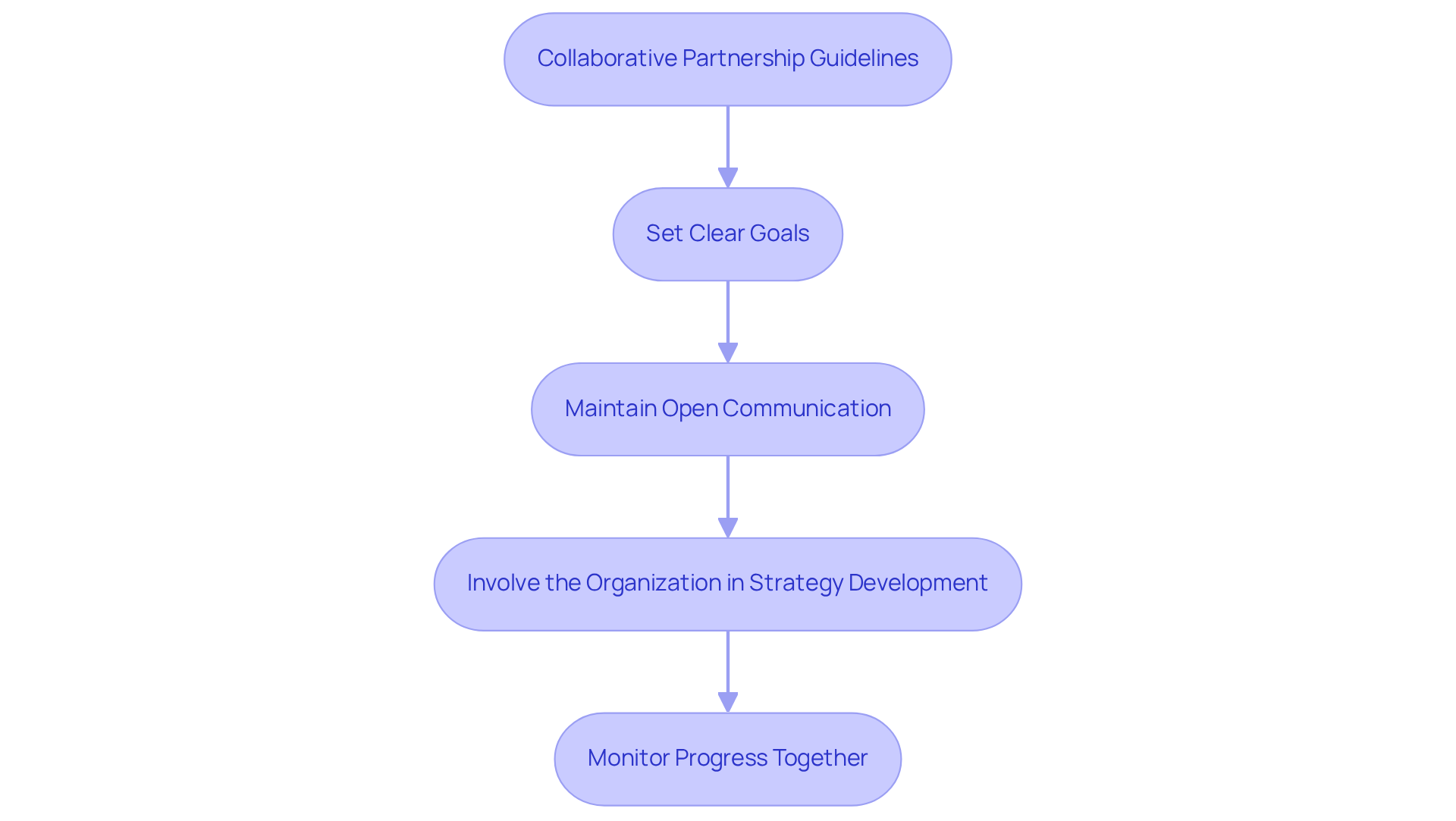
Overview
To select the appropriate digital commerce agency, DTC brands must prioritize those with demonstrated expertise in the DTC sector, a diverse array of services, and a data-driven methodology to refine strategies. This article underscores this necessity by outlining critical selection criteria, including the evaluation of case studies and client testimonials. Such assessments are vital in confirming that the agency possesses the capability to effectively elevate customer engagement and boost conversion rates.
Introduction
Digital commerce agencies have become indispensable allies for direct-to-consumer (DTC) brands seeking to excel in a fiercely competitive marketplace. By leveraging specialized services such as user experience design and data analytics, these agencies enable businesses to attract potential customers and convert them into loyal advocates. Yet, with a plethora of choices available, how can DTC companies ensure they select the right agency that aligns with their unique needs and objectives? This guide delves into the essential steps and criteria for choosing a digital commerce agency, ultimately empowering brands to forge successful partnerships that drive long-term growth and enhance customer engagement.
Understand the Role of Digital Commerce Agencies in DTC Success
Digital commerce agencies are pivotal to the success of direct-to-consumer (DTC) businesses, optimizing online presence and enhancing customer engagement. These organizations implement a variety of strategies, including:
- User experience design
- Conversion rate optimization
- Data analytics
This ensures that businesses not only attract traffic but also convert visitors into loyal customers. Notably, 25% of Americans consistently make DTC purchases, highlighting the growing market for these products.
To effectively leverage the expertise of a digital commerce agency, DTC companies must first understand the specific services offered, such as:
- A/B testing
- Competitor analysis
- Conversion copywriting
This foundational knowledge equips companies to make informed decisions when selecting a firm that aligns with their business goals and growth objectives.
Moreover, successful DTC companies harness the insights of a digital commerce agency to craft personalized shopping experiences that resonate with consumers, particularly Gen Z, who prioritize immediate rewards and social media engagement.
Additionally, the rise of subscription services has emerged as a significant trend, with subscription-based companies experiencing revenue growth approximately six times faster than that of S&P 500 companies.
By addressing the challenges of high customer acquisition costs and the need for precise targeting, a digital commerce agency can empower DTC brands to achieve enhanced conversion rates and foster customer loyalty.

Identify Key Criteria for Selecting a Digital Commerce Agency
When selecting a digital commerce agency, DTC brands must consider several key criteria:
- Experience with DTC Brands: It is imperative to prioritize firms with a proven track record in the DTC sector. Their familiarity with the unique challenges and opportunities faced by similar brands can significantly enhance the effectiveness of your collaboration.
- Service Offerings: Assess the breadth of services available. A well-rounded organization, such as Parah Group, should operate as a digital commerce agency by offering a comprehensive suite that includes Conversion Rate Optimization (CRO), UI/UX design, user session recordings, ongoing A/B testing, and customer surveys, ensuring all aspects of your digital plan are covered.
- Data-Driven Approach: Confirm that the organization employs a data-driven methodology. Utilizing analytics to inform decisions and continuously optimize strategies is essential for achieving measurable results, such as the reported by clients of a digital commerce agency like Parah Group.
- Client Testimonials and Case Studies: Examine testimonials and case studies to assess the firm's effectiveness. Successful outcomes, such as the 168% rise in conversion rates seen by Stanfield after collaborating with Able Sense, can offer valuable insights into the firm's capabilities.
- Cultural Fit: It is crucial to consider whether the organization's values and working style align with your brand's culture. A strong cultural fit fosters better collaboration and communication, which are vital for the success of your digital commerce agency initiatives.
- SEO and Content Marketing: Acknowledge the significance of SEO and content marketing as crucial domains for organizations to concentrate on. These approaches can improve search engine rankings and customer interaction, aiding in the overall success of your digital commerce agency initiatives.

Evaluate Agency Expertise and Proven Results
To effectively evaluate an agency's expertise and proven results, consider the following steps:
- Review Case Studies: Examine detailed case studies that highlight the organization's previous work. Pay close attention to the challenges encountered, strategies employed, and outcomes achieved. Metrics such as a 36% increase in ROI on ads and significant boosts in conversion rates serve as critical indicators of success. Furthermore, consider the total anticipated increase in direct-to-consumer sales in the U.S., projected to hit $213 billion in 2024. This projection underscores the in an expanding market.
- Ask for References: Request references from previous clients to gain insights into their experiences with the organization. This feedback can provide valuable context regarding the organization's reliability and effectiveness in delivering results, including tangible outcomes like increases in revenue per visitor and reduced reliance on paid advertising.
- Assess Industry Knowledge: Ensure the agency possesses a deep understanding of your industry. This expertise is essential for developing customized strategies that resonate with your target audience, particularly in the competitive environment of direct-to-consumer companies. For instance, Parah Group targets established DTC brands with a minimum of 100,000 website visitors and 2,000 purchases per month, showcasing their focus and expertise in this sector.
- Check Certifications and Awards: Investigate any industry certifications or awards the organization has received. These accolades can serve as indicators of their expertise and commitment to excellence. Agencies recognized for their performance often demonstrate a track record of successful metrics, such as improved average order values and reduced reliance on paid advertising. Additionally, examine the organization's comprehensive method to CRO, which integrates all elements of a client's website and marketing plan to foster growth, as demonstrated by successful case studies.

Establish a Collaborative Partnership for Long-Term Success
To cultivate a successful partnership with your digital commerce agency, adhere to these essential guidelines:
- Set Clear Goals: Articulate specific, measurable objectives for your collaboration. This clarity will guide the organization's plans and efforts, ensuring alignment with your business vision. For instance, Parah Group has achieved a 36% increase in ROI on ads for clients, demonstrating the potential benefits of a strong partnership.
- Maintain Open Communication: Create a culture of transparency where both parties can exchange insights, feedback, and updates consistently. This proactive communication helps address challenges swiftly and adapt strategies effectively.
- Involve the Organization in Strategy Development: View the organization as an integral part of your team by including them in strategic discussions. Their expertise can offer valuable insights that enhance your overall approach and drive better results. Parah Group offers services such as , which can support your strategic goals.
- Monitor Progress Together: Regularly assess performance metrics and progress towards your goals collaboratively. This joint monitoring fosters a sense of shared responsibility, allowing for the identification of improvement areas and the celebration of achievements along the way. For example, the success story of SeoulBox illustrates how effective collaboration with a digital commerce agency can lead to significant revenue growth, reinforcing the importance of these guidelines.

Conclusion
Selecting the right digital commerce agency is an essential step for direct-to-consumer (DTC) brands determined to excel in a competitive landscape. This guide underscores the significance of grasping the unique role these agencies play in amplifying online presence and fostering customer engagement. By harnessing their expertise, DTC companies can seamlessly transform visitors into devoted customers, ultimately propelling growth and success.
When choosing a digital commerce agency, key considerations include:
- Evaluating their experience with DTC brands
- Assessing the scope of their service offerings
- Ensuring a data-driven methodology
Moreover, scrutinizing client testimonials and establishing a cultural alignment are crucial for nurturing a fruitful partnership. This guide emphasizes the necessity of collaboration and open communication, which are indispensable for achieving shared objectives and tracking progress collectively.
In a swiftly evolving digital marketplace, partnering with a proficient digital commerce agency can prove transformative. Brands must actively seek agencies that resonate with their vision and values, securing a strategic alliance that not only fulfills immediate goals but also lays the foundation for enduring success. By embracing these strategies, DTC businesses will be empowered to adeptly navigate the intricacies of digital commerce, ultimately enhancing their market presence and cultivating customer loyalty.
Frequently Asked Questions
What is the role of digital commerce agencies in DTC success?
Digital commerce agencies play a crucial role in the success of direct-to-consumer (DTC) businesses by optimizing online presence and enhancing customer engagement through various strategies such as user experience design, conversion rate optimization, and data analytics.
What strategies do digital commerce agencies implement for DTC businesses?
They implement strategies including user experience design, conversion rate optimization, data analytics, A/B testing, competitor analysis, and conversion copywriting.
Why is understanding the services offered by digital commerce agencies important for DTC companies?
Understanding the services helps DTC companies make informed decisions when selecting an agency that aligns with their business goals and growth objectives.
How do digital commerce agencies help in creating personalized shopping experiences?
They provide insights that enable DTC companies to craft personalized shopping experiences that resonate with consumers, especially targeting Gen Z, who value immediate rewards and social media engagement.
What recent trend has been observed in subscription services within the DTC market?
Subscription-based companies are experiencing revenue growth approximately six times faster than that of S&P 500 companies.
What challenges do digital commerce agencies help DTC brands address?
They address challenges such as high customer acquisition costs and the need for precise targeting, which can lead to enhanced conversion rates and increased customer loyalty.
What percentage of Americans consistently make DTC purchases?
Approximately 25% of Americans consistently make DTC purchases, indicating a growing market for these products.
FAQs











